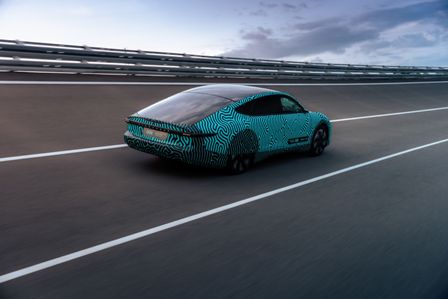
Solar car drives over 440 miles on a single battery charge
Lightyear, the solar electric vehicle pioneer, has achieved a major technology performance milestone by driving 441 miles (710 km) of range with its Lightyear One prototype car. Never before has an electric vehicle driven such a long-range on a relatively small battery.
The prototype car was put to the test at the Aldenhoven Testing Center in Germany, to complete a drive cycle at a speed of 53 miles per hour on a single battery charge of 60 kWh. The integral test ranged from validating the yield of the solar panels, the battery performance, the energy consumption of the cooling system, all the way to the functioning of the in-wheel motors and the software operating the solar car.
The conducted full drive cycle test is a crucial step to verify and validate all the assumptions of the vehicle’s performance. Beyond the validation of the technical performance of the car, other upcoming tests are related to the homologation process such as the crash tests and an official WLTP drive cycle test.
Information Source: Read Full Release ..–>

